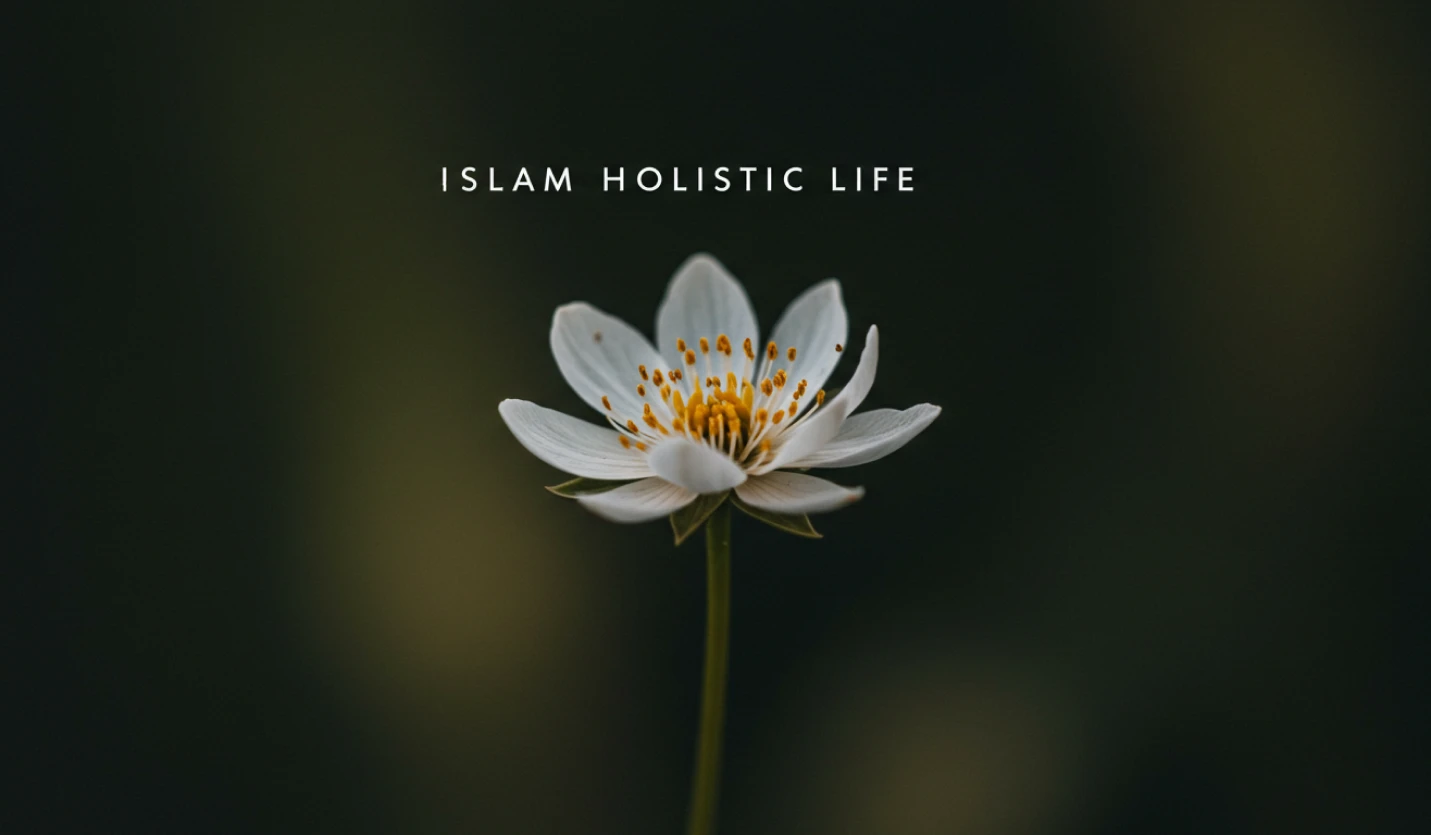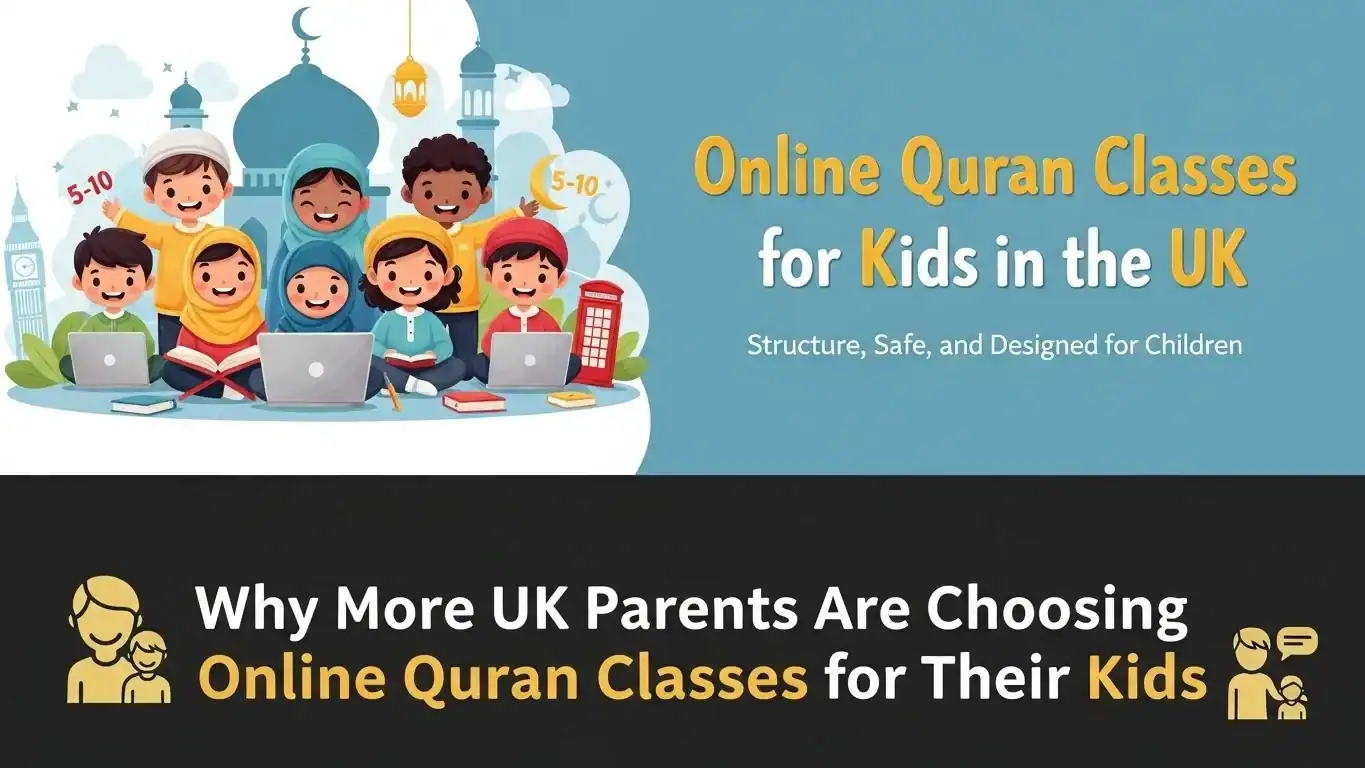Islam holistic life is not just about prayer and rituals.
It is a complete way of living that unites your body, mind, soul, and society in harmony.
From the way you eat, rest, think, and interact, Islam gives you a framework that transforms every moment into worship | if done with the right intention.
In a world full of stress, confusion, and distractions, this holistic vision of Islam provides clarity, peace, and purpose for both new Muslims and lifelong believers.
The Concept of Islam Holistic Life:
Islam is not a religion that separates “faith” from “daily life.” Instead, it is a comprehensive system that integrates worship, health, emotions, and society into one unified approach.
-
Worship is linked to sleep, food, hygiene, finances, and relationships.
-
The Qur’an and Sunnah cover all dimensions of human needs — physical, spiritual, mental, and social.
-
Islam’s holistic view ensures that even ordinary acts like eating, sleeping, or smiling become worship when done with intention.
This approach reflects the Prophetic model, where every action — from prayer to family care — connected back to Allah.
The Four Dimensions of a Holistic Islamic Life:
| Dimension | Core Practices | Impact on Life |
|---|---|---|
| Spiritual | Salah, dhikr, Qur’an recitation | Builds peace, clarity, and resilience |
| Physical | Cleanliness, balanced diet, fasting, exercise | Strengthens body and discipline |
| Emotional | Reflection, sabr, gratitude, tawakkul | Heals anxiety and grows emotional intelligence |
| Social | Justice, honesty, family ties, zakat | Creates harmony and strong communities |
1. The Spiritual Dimension: Nourishing the Heart:
-
Prayer (Salah): Establishes daily rhythm and spiritual focus.
-
Dhikr and du‘a: Reduce stress, calm the mind, and strengthen faith.
-
Qur’an recitation: Brings clarity, guidance, and inner peace.
-
Gratitude (shukr) and tawakkul: Build resilience and help believers face challenges with hope.
👉 Spiritual health in Islam is not isolated. It impacts physical energy, emotional balance, and even social behavior.
2. The Physical Dimension: Caring for the Body:
The Prophet ﷺ said: “Cleanliness is half of faith.” Islam emphasizes physical wellbeing as part of spirituality.
-
Cleanliness (tahara) is not optional — it’s an act of worship.
-
Balanced diet: Qur’an promotes moderation and avoidance of waste.
-
Fasting (sawm): Builds discipline, detoxifies the body, and nurtures empathy.
-
Exercise: The Sunnah encourages swimming, archery, and horseback riding.
-
Sunnah health habits: Using siwak, practicing hijama (cupping), and eating mindfully.
💡 Islam teaches that your body is a trust (amana) — and caring for it is part of holistic worship.
3. The Mental & Emotional Dimension: Healing the Mind:
Islam acknowledges emotions: grief, sadness, and anxiety are real human experiences. But it also provides tools for mental resilience.
Key Emotional Practices in Islam
-
Reflection (tafakkur): Qur’an encourages deep thinking.
-
Patience (sabr): Builds emotional intelligence and self-control.
-
Gratitude (shukr): Improves positivity and resilience.
-
Tawakkul (trust in Allah): Reduces anxiety and brings peace.
Historical Insights
-
Scholars like al-Razi and Ibn Sina described depression and stress as conditions requiring both spiritual and medical attention.
-
Islamic hospitals historically combined prayer rooms, gardens, and medical treatment for holistic healing.
Modern Applications (UK context)
-
🏃 Mindful Sunnah: A UK project that blends physical activities (walking, archery, swimming) with dhikr, showing how Islam promotes holistic wellbeing.
-
🧠 Yaqeen Institute research: Confirms that dhikr, salah, and gratitude improve mental health.
📌 Islam’s holistic life is a mental wellbeing system that rivals modern psychology — and it has been guiding Muslims for 1400+ years.
4. The Social Dimension: Building Strong Communities:
Holistic Islam is not just about individual growth — it’s about community care and justice.
-
Kindness to neighbours and family = ibadah.
-
Justice and fairness in transactions: Qur’an forbids dishonesty and exploitation.
-
Zakat and sadaqah: Strengthen communities by reducing inequality.
-
Family ties (silat al-rahim): Essential for spiritual growth.
UK Examples of Holistic Social Care
-
🤝 Muslim Youth Helpline: Supports young Muslims facing depression, identity struggles, or family issues, inspired by Islamic compassion.
-
📚 iSyllabus: A British Islamic curriculum that helps Muslims integrate Islamic knowledge with modern life.
-
🏃 Mindful Sunnah: Encourages social bonding through Sunnah-inspired activities.
💡 Social justice, community care, and family values are not extras — they are core pillars of Islam holistic life.
📩 Live Islam Holistic Life with Quranic academy
→ WhatsApp us now
Prophetic Examples of Holistic Living:
Prophet Muhammad ﷺ embodied holistic balance in all areas:
-
Worship + rest in harmony.
-
Smiling often, staying active, eating moderately.
-
Practiced siyasa (social leadership) while maintaining family ties.
-
Visited the sick, cared for orphans, and emphasized moderation: “The best of affairs is the middle way.”
Islam is not about extremes — it is about harmony and balance.
How to Implement Holistic Islam Daily:
| Daily Action | Dimension | Benefit |
|---|---|---|
| Begin with Fajr & short walk | Spiritual + Physical | Energy + focus |
| Eat mindfully, say Bismillah | Physical + Spiritual | Barakah + health |
| 15 minutes Qur’an reflection | Spiritual + Mental | Calm + clarity |
| Give small daily charity | Social + Spiritual | Reward + community |
| End day with istighfar & journaling | Mental + Emotional | Release stress + reset intentions |
👉 Want to put this daily plan into action?
Join our Islamic Studies Course and learn step by step with guidance.
Why Holistic Islam Matters for Non-Arabic Speakers:
Many non-Arabic speakers think Islam = rituals. But Islam is actually a full ecosystem for life:
-
Gives meaning to every action.
-
Provides structure in a chaotic world.
-
Links habits (eating, resting, working) with faith.
-
Brings peace, purpose, and clarity.
Even without fluent Arabic, you can live Islam deeply.
🌍 Learn to Live Islam Holistic Life – With Quranic Academy:
At Quranic academy our Islamic Studies Course is designed to help you connect with Islam in all aspects of life.
🎓 You will:
-
Explore faith, worship, manners, and purpose.
-
Learn how Qur’an builds your mindset and habits.
-
Connect Sunnah practices to modern life.
-
Understand Islam’s balance between body, mind, and soul.
👉 Join Today – Get Free Trial Lesson!
Why Choose Quranic Academy?
-
📖 Lessons in English for all levels.
-
🌍 Designed for non-Arabic-speaking Muslims worldwide.
-
👨🏫 Azhar-certified teachers with strong communication skills.
-
🕰️ Flexible scheduling.
-
🎁 First 2 trial lessons free.
Islam is holistic. So is our teaching.
Frequently Asked Questions:
What does holistic Islam mean?
It means Islam integrates faith, health, emotions, and society in balance.
How can I apply holistic Islam daily?
By living with intention and moderation. Eating, sleeping, and smiling become worship when aligned with values.
Is holistic Islam only for scholars?
No. Every Muslim can live it with knowledge and consistency.
Does Islam address mental health?
Yes. Classical scholars studied it deeply. Today, initiatives like Mindful Sunnah and Muslim Youth Helpline continue this tradition.
Can non-Arabic speakers practice holistic Islam?
Absolutely. Our course is designed for English-speaking Muslims to apply Islam fully in their lives.
Does Islam guide physical health too?
Yes. Qur’an and Sunnah emphasize balanced diet, cleanliness, fasting, and exercise as acts of worship
📩 Live Islam Holistic Life with Quranic academy
→ WhatsApp us now



